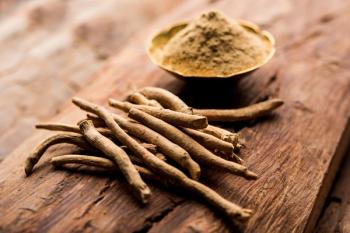
Pygeum Supplies Are Short, Company Offers Alternative from the Plum Tree
The ingredient has a botanical profile 98.5% similar to pygeum’s, the company says.
Pygeum (Prunus africana) is a popular African herb in the men’s health supplement market, with studies showing benefits for benign prostatic hypertrophy (enlarged prostate). Pygeum supplies, however, have historically run short in light of
The branded ingredient, Sitoprin, stems from the bark of the Prunus domestica (plum) tree. Cepham President Anand Swaroop, PhD, told Nutritional Outlook that the ingredient’s botanical profile is 98.5% similar to pygeum’s and contains noted levels of beta-sitosterol and docosyl ferulate, the chemical compounds in pygeum that studies tie to prostate-health benefits.
The ingredient’s hydroethanolic extraction method is U.S. patent pending, Swaroop says, adding that safety studies confirm Sitoprin’s non-mutagenic properties. He says the firm is currently working on two human clinical studies with prostate-health endpoints.
“The men’s health industry is well aware that pygeum supplies are dwindling,” the company says in its press materials. “As a protected species, it could be another 30-50 years before current cultivation efforts in Africa restore the supply. Thankfully, we have a pygeum alternative with 98.5% profile similarity and statistically comparable effects.”
Editor-in-Chief
Nutritional Outlook magazine
jennifer.grebow@ubm.com
Photo © iStockphoto.com/Avalon_Studio
Newsletter
From ingredient science to consumer trends, get the intel you need to stay competitive in the nutrition space—subscribe now to Nutritional Outlook.




